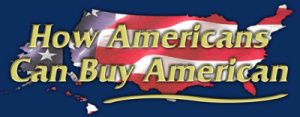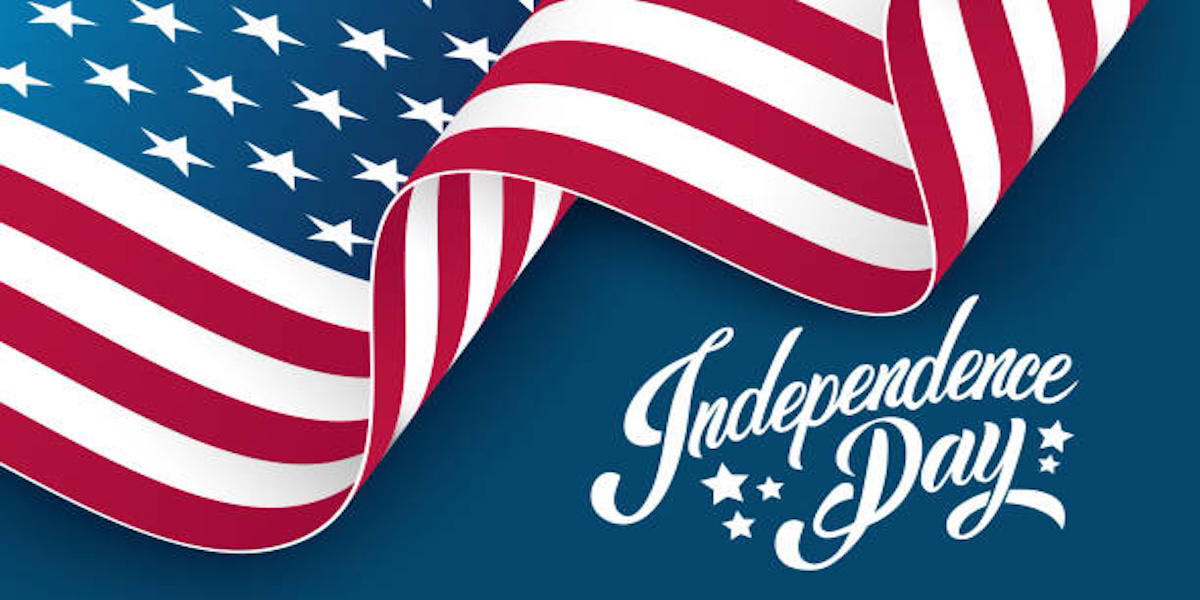As we prepare to celebrate our nation’s 249th birthday, a good question to ask ourselves is “are we really an independent nation in the vision of our Founding Fathers?” Considering that we imported $1.2 trillion worth of goods from other countries more than we exported last year, the answer is unfortunately a solid “no.” We depend heavily on other nations like China for many of our wants and needs.
In light of this fact, there is another question to ask ourselves, and that is, “what can we do to become a more independent nation?” The answer is two-fold. First, we need to buy American whenever possible and practical, and second, we need to support common-sense trade policies like the ones enacted by President Trump in his first administration, continued and expanded by President Joe Biden, and expanded even further in the current administration.
The ‘Buy American’ answer requires the most action, and the good news is that it is easier to do than most people think. And it doesn’t always mean spending more money if you know where to look. For example, only 3 percent of the clothing we buy in America is made in America. But if we arm ourselves with the information to know where to find that 3 percent, we are going to be able to vote with our dollars in the right way. As citizens, we vote in elections once every two or four years. But as consumers, we vote with our wallets or pocketbooks every single day.
But what does it mean to truly buy American? First, it does not mean simply buying a product that is labeled ‘Made in the USA.’ If it did, we would all be satisfied we were buying American if we bought American-made Black Cat fireworks for our July 4th celebrations. Black Cat is owned by Hong Kong-based Li & Fung Limited. Hong Kong, of course, is controlled by China. The Chinese Communist Party (CCP) has severely limited rights there in the areas of free speech and freedom of assembly, as well as political and religious expression. Few people would say we were buying American by purchasing an American-made product owned by a Chinese (or any other foreign-based) company.
Some Black Cat fireworks are assembled in the USA, but the point is, even if we buy products made in or assembled in the USA, we are often still sending our dollars to China and are therefore becoming more interdependent. Our country has a Declaration of Independence, not a declaration of interdependence. Our U.S. Constitution says we are to form a more perfect Union. It does not suggest that we strive to form a more perfect global economy.
The true definition of buying American, in the purest sense of the term, is buying an American-made product from an American-owned company with a high domestic parts content within those products.
Your grocery store is a great place to start buying American. These may be small-ticket items, but since we visit the grocery store frequently, we spend more of our money there than elsewhere on big-ticket items like appliances. Fortunately, many grocery store products are made, canned, or processed in the U.S. The only difference is often the ownership of the company.
Here are a few quick examples:
| American-Owned Brand | Foreign-Owned Brand | Foreign Nationality |
| Pilgrim’s Pride | Smithfield Foods | China |
| Irish Spring | Jergens | Japan |
| Ivory | Dial | Germany |
| Clorox | Lysol | UK/Netherlands |
| Tide | Woolite | UK |
| Arizona | Lipton | UK |
| Revlon | Maybelline | France |
| Wahl | Philips | Netherlands |
| Whirlpool | GE (appliances only) | China |
| Swiss Miss | Nestle | Switzerland |
All brands listed above make many of their products in the USA. Patronizing American-made products helps keep manufacturing and assembly jobs in America, but buying American (owned, made, parts content) products is better. Patronizing the foreign brands above still sends dollars out of the country and rewards foreign owners, foreign investors, and foreign stockholders, who pay taxes to foreign treasuries – not the U.S. Treasury. Only by buying American-owned brands made in the USA can we keep jobs, profits, and tax revenue within our national borders.
We have a vast national debt and will need a lot of revenue to pay it down and keep our country solvent. When we buy an American-owned company’s product (even ones that are made elsewhere) the profits come to or stay in America, and the taxes on those profits are paid to the U.S. Treasury. Alexander Hamilton warned us through his writings in the Federalist Papers that A nation cannot long exist without revenue.
Manufacturing jobs make up about 10 percent of our workforce. The other 90 percent are in positions like engineering, design, research and development (R&D), testing, administration, finance, and advertising. When we buy from an American-owned company, these other jobs will likely be in America.
Although assembled overseas (just like every other cell phone), my iPhone is engineered and designed in the USA. Components like the glass display and audio chips are sourced in America.
You might have seen media reports claiming it would be nearly impossible for Apple to afford to make their phones in the USA without raising prices, but that is not true. I bought a Motorola Moto X phone made in Texas several years ago, and the cost was similar to other cell phones on the market. Despite expectations, Motorola did not command a significant market share and could not take advantage of greater economies of scale (more production results in a lower cost per unit produced). Motorola sold the factory to Chinese-owned Lenovo, which closed the factory in 2014 – yet another example of why we should emphasize supporting American-owned companies.
If a company with the market share of Apple were to produce cell phones in America, it could be profitable at existing prices due to its high sales volume.
Over three-quarters of economic activity is based on consumer spending. Americans can only be as affluent as consumers as they are wage-earners. Consumers must have money in their pockets to be able to spend and keep our economic prosperity going.
According to the Economic Policy Institute, each manufacturing job creates an average of 7.4 other U.S. jobs. Manufacturing jobs in the United States are also high-wage jobs. According to the Bureau of Labor Statistics (BLS), the average annual wage for a manufacturing employee is $103,000.
It is a complete fallacy that producing in cheaper labor countries will result in lower prices for U.S. consumers. The auto industry provides the evidence. Until 2021, Toyota made its Tacoma truck in the U.S. and Mexico. Did the Mexican-made Tacoma cost less than the U.S.-made version on the dealer lot? Of course not.
We should not be emphasizing the supposed need for products from cheap labor countries. Republican President William McKinley had a few things to say about the word ‘cheap:’
I do not prize the word cheap. It is not a badge of honor. It is a symbol of despair. Cheap prices make for cheap goods; cheap goods make for cheap men; and cheap men make for a cheap country.
We should, therefore, emphasize founding national values like independence, self-sufficiency, and self-reliance. In many cases, trade with foreign countries is simply not necessary.
President Abraham Lincoln once said, I…would continue (trade) where it is necessary, and discontinue it, where it is not. As instance: I would continue commerce so far as it is employed in bringing us coffee, and I would discontinue it so far as it is employed in bringing us cotton goods.
Note that our sixteenth president did not say to avoid trade where it is not necessary. He said to discontinue it.
Free trade and globalization are not only unconstitutional (the term ‘free trade’ is not mentioned in any founding national document), it is also detrimental to our economy. For example, we lost 845,000 American jobs due to the original NAFTA from 1993 to 2014. And after China joined the WTO, we lost another 3.7 million jobs between 2001 and 2018.
American consumers may think they’re saving money on price by buying products made in China and elsewhere, but the true ‘cost’ to our economy is not worth it. Only American workers pay taxes to America. Workers in China and other countries do not pay taxes to America and do nothing, as President William McKinley put it, to contribute to the support, the progress, and the glory of the nation.
We have to be able to pay for the things that ‘We the People’ have demanded from the use of our tax dollars. At least three-quarters of all federal spending goes to Social Security, Medicare, national defense, education, farm subsidies, highways, parks, roads & bridges, and interest payments on the debt. Polls show most Americans do not necessarily favor more government spending but strongly back these programs. This list does not include funding for Medicaid, our military, or public hospitals and libraries.
We cannot buy products made by workers in foreign countries and still expect to fund and benefit from these taxpayer-funded initiatives.
The best way to obtain revenue through our consumer purchases is to buy American-made products from American-owned companies, since American-owned companies pay up to twice as many taxes to America as foreign-owned companies.
The U.S. consumer has the power to steer the global economy in a direction that best benefits America. Knowing how to find and buy American products is the only thing preventing us from doing that. Once we know how to do that, we will possess the power to truly unleash American prosperity with the consumer dollars we are already spending.


